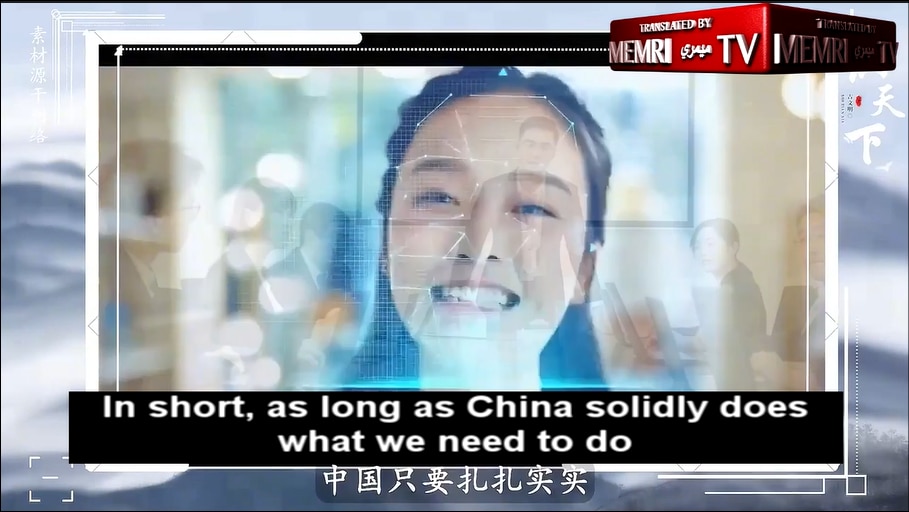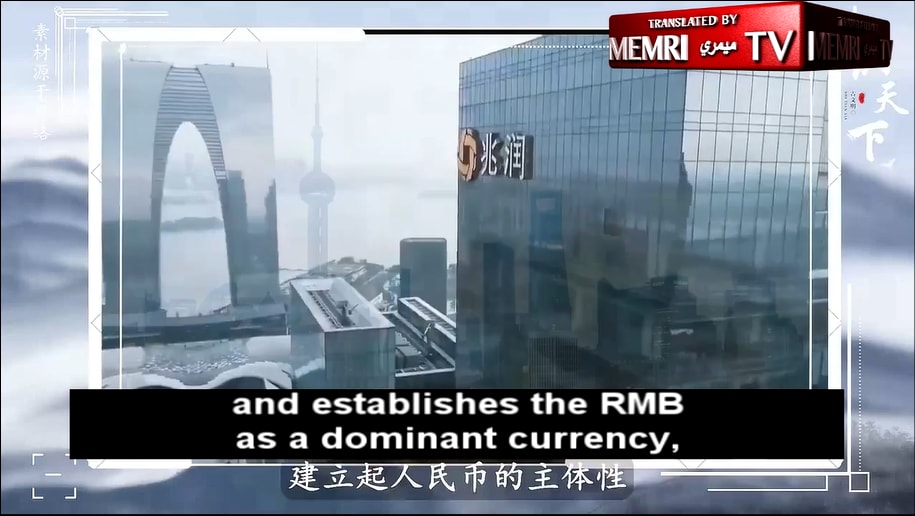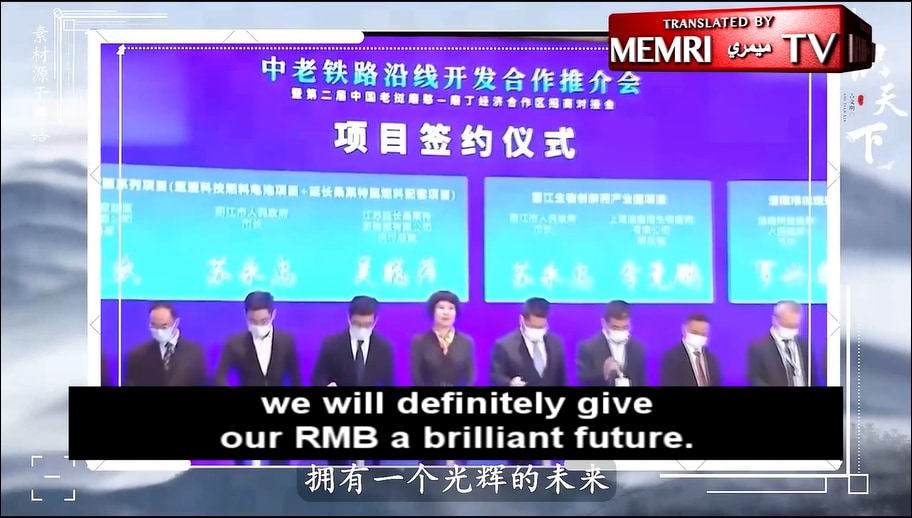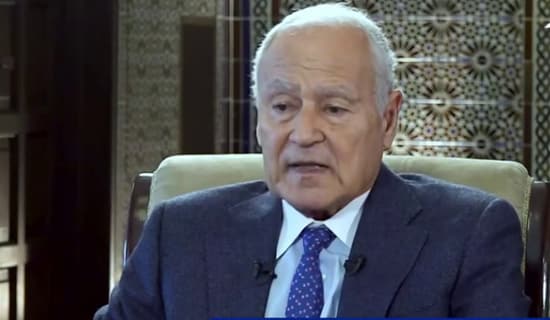
Chinese economist Lu Qiyuan said in a video posted on his Haokan account on March 13, 2024 that China should establish a renminbi-based cooperative economic zone consisting of countries within range of its Dongfeng ballistic missiles, so that it can enforce its economic strength with its military capabilities.
Lu Qiyuan: "If we establish three layers within the entire Greater Asia region, all within the range of the Dongfeng ballistic missiles, and make it renminbi-based, you won't need to worry about China's surplus problem at all. Who says we can solve internal economic problems without externalities? Does America need externalities and we don't?
"Let me give you an example. We create three circular systems. The first circular system is the great domestic circulation. The second layer is the great Asian circle. The concept of the great East Asian circle was originally proposed by the Japanese as the 'East Asian Co-Prosperity Sphere.' It was a good idea. It's time for the Chinese to implement it.
"What I mean is, you've got to finish on top. If you think you have a responsibility to East Asia, then you have to help Sri Lanka. And if Southeast Asia encounters difficulties, you have to help it too. You have to allow these countries to issue sovereign renminbi [RMB] bonds in Beijing. Once the RMB is externalized, there will be large demand worldwide to use the RMB for purchases. What are they buying? They're buying your supply. Your economy has external demand, so it will rise. Why not?
"The second circle is East Asia. The third circle will encompass North Asia, which includes the [former] Soviet Union and West Asia. If we establish three layers within the entire Greater Asia region, all within the range of the Dongfeng ballistic missiles, and make it RMB-based, you won't need to worry about China's surplus problem at all.
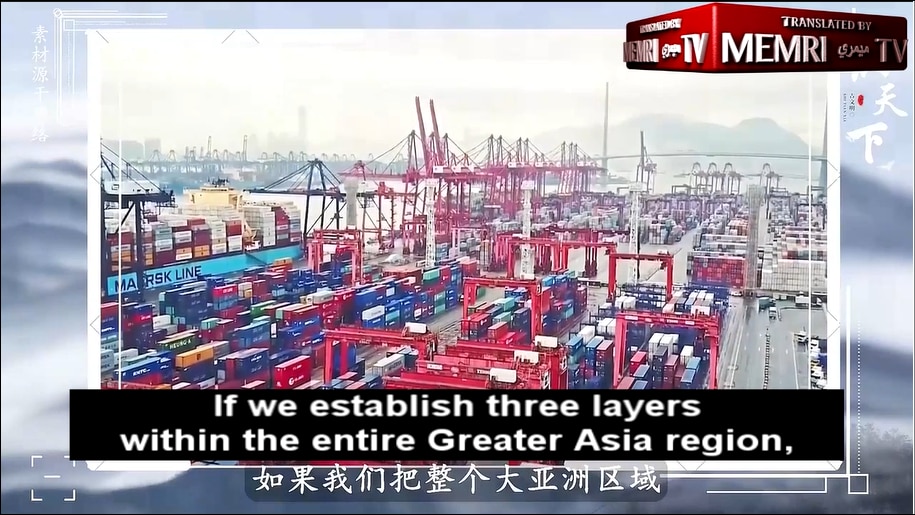

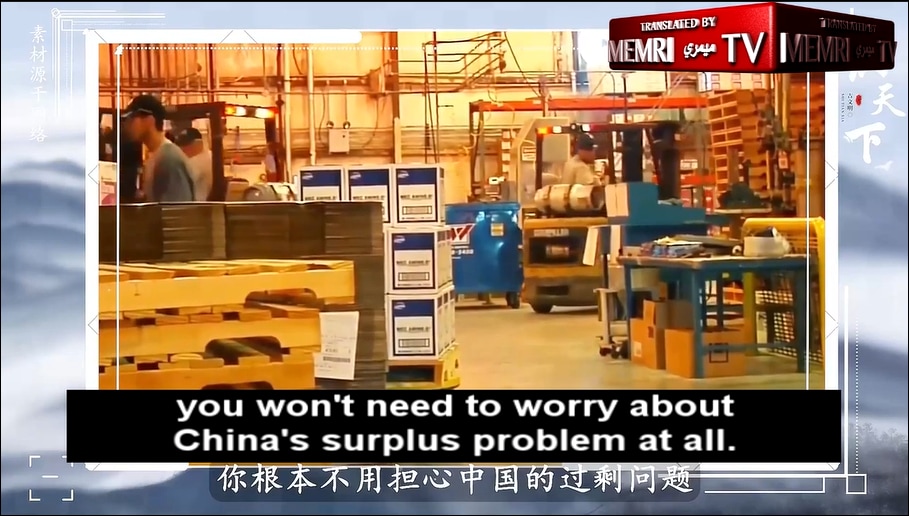
"Let me emphasize again here, there's a very simple principle in general theory, it's a philosophical question, which is that Keynes believed that supply and demand are one and the same. Supply creates demand, and demand drives supply; they are two sides of the same coin. Who told you that we need supply-side structural reforms? It's not supply-side structural reform, there are no supply surpluses. The so-called supply surplus is a regional problem. The surplus of steel in Hebei doesn't mean China has a surplus, and China's surplus doesn't mean the whole world has a surplus.
"So, what we need to achieve is overall integration. Investment in science and technology is also supply, is there a surplus? The water cycle is also a supply, is there a surplus? Social Security is also a supply, is there a surplus? Have you invested in them? Once you've invested, they all become effective demand. In short, as long as China solidly does what we need to do and establishes the RMB as a dominant currency, we will definitely give our RMB a brilliant future."

